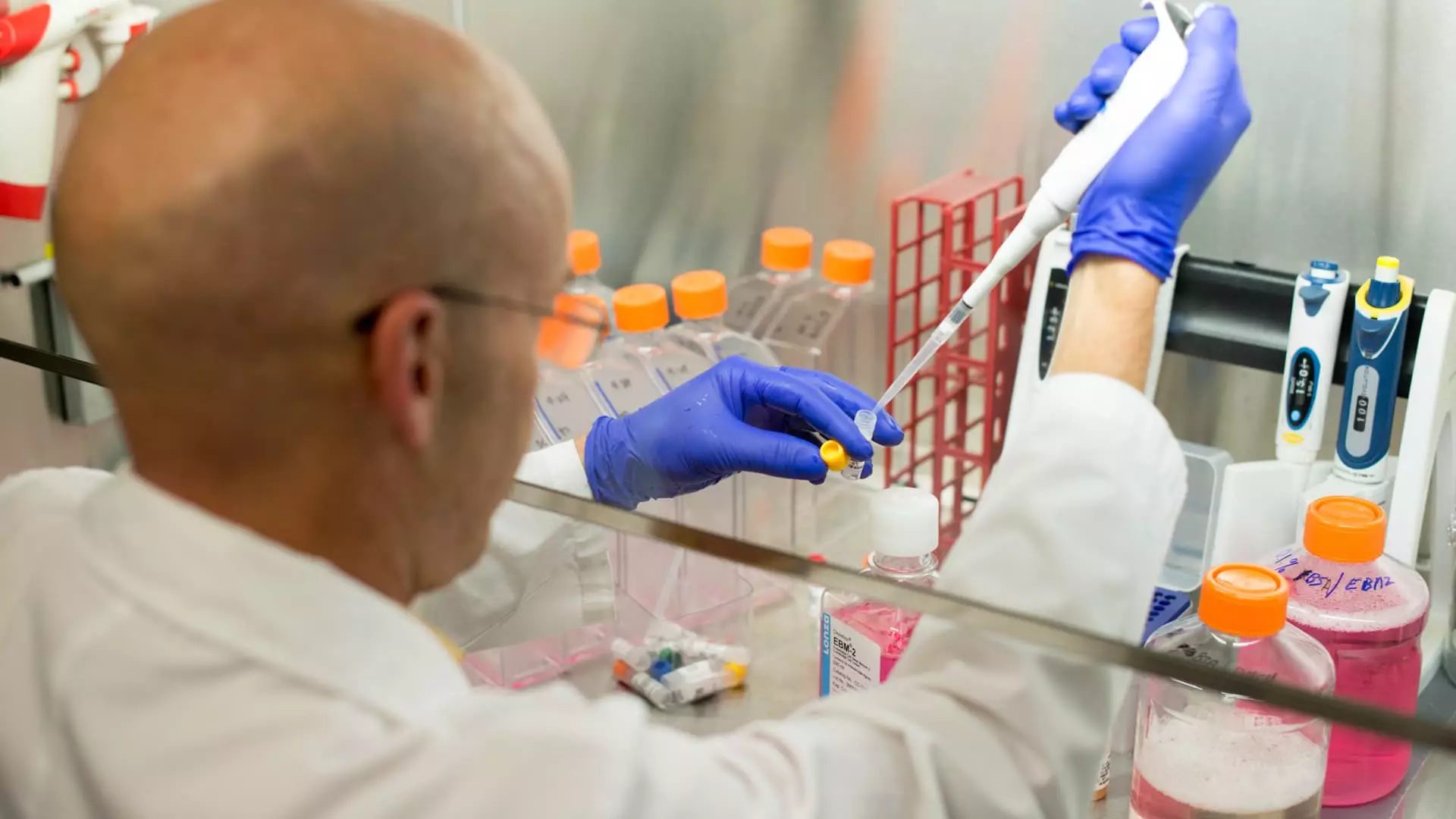Recursion Pharmaceuticals recently achieved a significant advancement in the realm of drug discovery by leveraging its artificial intelligence-enabled platform. This strategic innovation culminated in the identification of a biological target for treating solid tumors and lymphoma, leading to a rapid progression of their candidate treatment, REC-1245, through critical development milestones. As an industry pioneer, Recursion has underscored the transformative potential of technology in healthcare, proving that AI can effectively streamline the lengthy and complex processes associated with drug development.
In an era where time is of the essence, the firm’s ability to gain regulatory approval for clinical trials in less than 18 months is nothing short of remarkable. This accomplishment not only reinforces Recursion’s position within the techbio landscape but also highlights the industry’s growing confidence in the integration of machine learning and biotechnology. CEO Chris Gibson articulated this sentiment during an interview, emphasizing the relevance of this achievement as a significant proof point that validates the applications of AI in drug discovery.
The Food and Drug Administration’s approval of a phase 1/2 clinical trial for REC-1245 has opened up promising avenues for treating a potential market of over 100,000 patients in the U.S. and the European Union. This experimental treatment is strategically positioned to target RBM39, a biomarker functionally analogous to the well-known CDK12, indicated for advanced, homologous recombination-proficient cancers, including ovarian, prostate, breast, and pancreatic types. The anticipated trial, set to assess the drug’s safety and tolerability, is scheduled to initiate in the last quarter of this year, marking an important step toward filling unmet medical needs in oncology.
The emphasis on RBM39 positions Recursion at the forefront of targeting previously elusive markers in the realm of cancer treatments. By combining cell biology insights with AI capabilities, the company plans to explore more efficient pathways to investigate drug efficacy in complex cancer cases. Such a targeted approach may lead to better therapeutic outcomes, reflecting a profound shift in how cancer treatments are developed and assessed.
The advent of AI in pharmaceuticals promises to redefine the paradigm of drug discovery by expediting timelines and reducing costs associated with traditional methodologies. Historically, identifying viable drug candidates has been a laborious process characterized by extensive trial-and-error assessments. However, emerging AI technologies are altering this landscape by providing robust data analytics that can rapidly filter viable candidates from extensive biological datasets.
Recursion’s vast repository of biological data, built over 11 years, equipped them with the necessary resources to engage in a process likened to an expansive Google search for potential drug targets. This level of innovation represents the culmination of years of investment and research, with REC-1245 serving as a tangible outcome of this data-driven approach. By harnessing advanced machine learning tools, Recursion has demonstrated an ability to fuse data with creativity, illuminating the potential of AI-driven drug discovery.
Despite the promising advancements, Recursion Pharmaceuticals faces inherent risks positioned alongside its innovative trajectory. The company’s stock value has seen a considerable decline, marking a 38% drop since the beginning of 2024, and it also remains over 60% below its 52-week high. While the merger with fellow AI-focused company Exscientia may enhance data acquisition and broaden the analytical capabilities, the pressure to deliver on investor expectations looms large.
Market analysts currently rate Recursion shares as a hold, with a bullish perspective from a few who recognize the long-term value proposition. With an average price target of $10.14 reflecting a 64% potential return, there remains cautious optimism regarding the company’s ability to navigate challenges in an evolving market landscape. As the partnership with Exscientia materializes, the expectation is that both companies will amplify their efforts in rebuilding investor confidence while actively pushing the boundaries of AI-enhanced drug discovery.
Recursion Pharmaceuticals stands at the forefront of an exciting era in drug discovery, propelled by artificial intelligence. With critical milestones achieved and significant therapies on the horizon, there is hope that such innovative approaches will reshape oncology treatments and enhance patient outcomes. As the industry embraces the potential of techbio solutions, Recursion’s journey may serve as a guiding blueprint for navigating the complexities of reimagining healthcare through technology. As they continue to lead the charge, stakeholders across the biosciences sector will keenly observe the unfolding developments that could ultimately redefine the future of drug discovery.


Leave a Reply